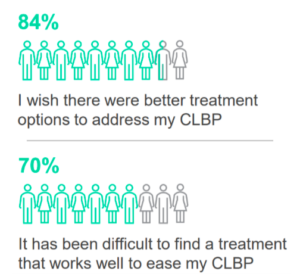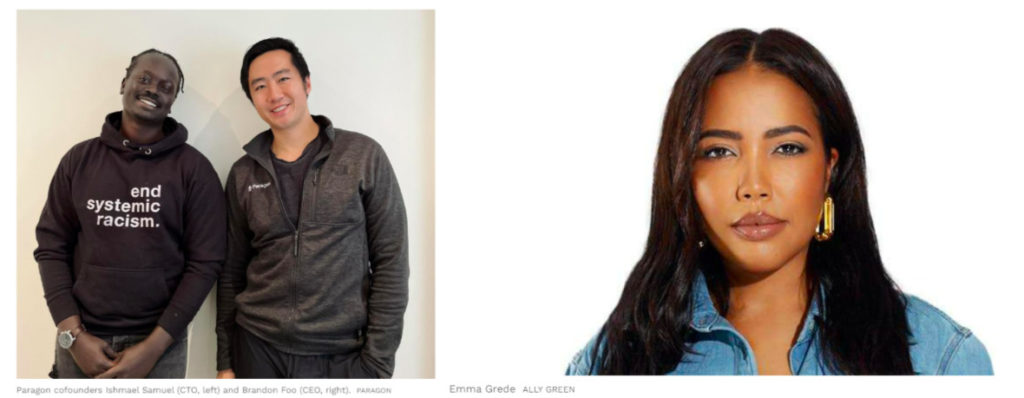Brief • 4 min Read
In The Harris Poll Tracker (Week 129) fielded August 12th to 14th, 2022 among 2,007 U.S. adults, Monkeypox is a new worry: While under four in ten (39%) of Americans are concerned about contracting the virus, fear among parents with children under 18 is significantly higher (58%). And there’s elevated concern about the economy and inflation (85%), but fear of a new wave (58%) dipped 5%-pts from last week.
New polls this week include our USA TODAY survey on quiet quitting, the trend that may have begun early in the pandemic, and a Wall Street Journal op-ed by Mark Penn detailing how the midterms are far from over. Additionally, we cover the looming healthcare crisis that is right behind you and how Black entrepreneurialism is thriving in America.
Check out our America This Week: From The Harris Poll podcast on Spotify and Apple Podcasts with me, John, and our CSO Libby Rodney on this week’s data and more.
Quiet Quitting – The Trend of Working Less, by Fading Into The Background: USA Today-Harris Poll
After two years of COVID burnout, employees are dropping the idea of going above and beyond in their job, according to our recent work with USA Today. And interestingly, data from The Harris Poll Weekly COVID Tracker reveals the work less for the same pay started just a year into the pandemic and may explain why we have more workers yet lower productivity.
- Context: The term “quiet quitting” describes American workers putting their careers into cruise control by sticking by their job descriptions instead of late nights, on-call vacations, etc. But instead of changing jobs, they’re pausing, pondering, and planning the next step, all while collecting their paycheck.
- It seems to have started with working in pajamas… Just months into the pandemic, (51%) of employees said they were more likely to work in their pajamas than get dressed (May 29, 2020), and six months later, in our survey with Morning Brew, (36%) found workers would miss their athleisure, pajamas, and sweatpants in the office.
- All rules went out the window while WFH – “I do what I want”: Going into 2021, over a fifth (21%) of all workers and over a quarter (27%) of Gen Z/Millennial employees admitted to online shopping while in a meeting and/or while working. And Gen Z & Millennials workers even said they were streaming shows while working (24%) and setting their email status to active while doing personal things to appear busy with work (22% v. gen pop: 17%).
- COVID burnout only added fuel to the fire: As recently as April, half of all U.S. workers (51%) felt burned out from work, according to our latest survey with Talkspace.
- Now, work/life balance over climbing the corporate ladder: (76%) of employed Americans now report that happiness and a good work-life balance are more important to them than their professional ambition and career advancement (26%).
Takeaway: After six straight months of shrinkage, the U.S. economy is roughly $125 billion smaller than it was at the end of 2021, according to inflation-adjusted Commerce Department data. Yet employers have hired 3.3 million new workers over that same period. How can a bigger workforce lead to lower productivity? Perhaps during the pandemic’s layoffs, companies could push a workforce to do more with fewer people. But with a stronger labor market, workers seem to be saying ‘enough.’
The Midterms Are Far From Over: Wall Street Journal-Harvard CAPS/Harris Poll
Our Harris Poll Chairman (and Stagwell Chairman/CEO) Mark Penn’s Wall Street Journal op-ed, ‘The Midterms Are Far From Over,’ suggests that the key voters are the (18%) who disapprove of Biden but still plan to vote for congressional Democrats:
“Midterm elections are usually seen as a referendum on the president. Based on Joe Biden’s approval ratings, Republicans should have locked victory in by now. But while a July 27-28 Harvard CAPS-Harris Poll finds Mr. Biden’s job approval at a historic low of (38%), the Democrats still get (50%) of the generic congressional ballot. Of the poll’s respondents, (18%) disapprove of Mr. Biden’s performance yet plan to vote Democratic in November. A closer look at this group could prove useful to both parties as Election Day approaches.
They break down as follows: (52%) Democrat, (6%) Republican, (42%) independent or other; (37%) liberal, (51%) moderate, (12%) conservative. Whereas (45%) approve of the Democrats, only (27%) approve of the GOP. And while (27%) have a favorable view of Mr. Biden personally, only (17%) say the same about Donald Trump.”
Read more here about the other midterm considerations held by American voters.
America’s Hidden Public Health Crisis is Right Behind You: Vertos Medical-Harris Poll
In a new Vertos Medical/Harris Poll Survey, more than 72 million Americans are suffering from chronic lower back pain (CLBP).
- Back pain is more prevalent than any other disease state in America today: The number of those with CLBP outpaces those with arthritis (58.5 million), diabetes (37.3 million), and heart disease (30.3 million).
- Life with CLBP isn’t easy as more than three-fourths (76%) say it has interfered with their ability to complete everyday tasks – and close to half (44%) report suffering with CLBP for five years or more.
- Those suffering from CLBP are also lacking quality treatments options for their pain:

- And there is a larger concern around opioids as a treatment as close to a fifth of CLBP sufferers (15%) are taking opioids for it, despite updated CDC guidelines noting inadequate effectiveness and inherent risks.
- A new wave of opioid abuse? In 2018, in partnership with NPR, we found that the majority (87%) of Americans currently taking opioids were given prescriptions lasting longer than 5 days which is the threshold of addiction risk according to the CDC, which states the chances of opioid addiction “significantly increase” after 5 days – worse, the typical prescription length was six times that we found.
Takeaway: “Those suffering from CLBP face a compounding problem,” Kathy Steinberg, VP of Media/Comms at Harris Poll, explains, “as more than a third are not being told what causes their pain, and opioid use is still high for pain management even given the latest treatment guidelines, suggesting that more awareness is needed in both finding the cause of pain and how to treat it appropriately.” Beyond health implications, CLBP could become exacerbated as Fortune recently quoted a workplace-wellness and ergonomics educator that says the recent shift to remote work has “aged our bodies by about 10 to 15 years.”
As the World Works On Itself, Black Culture Keeps It Pushing: Forbes-Harris Poll/CVS Health
According to our media partner, Jared Council at Forbes, while much has changed in the last year for many Black Americans, systemic change is not reaching the areas it needs to fast enough, leading many Black entrepreneurs to press on, even after bearing the brunt of the mental health crisis that’s arisen in the wake of the pandemic. Jared’s reporting highlights the flourishing wave of Black entrepreneurialism despite the societal headwinds:
- According to our CVS Health-Harris Poll National Health Project, as covered by Forbes, (29%) of Black Americans rated their mental health as poor (v. white: 22%), a (+12%-pt) increase from pre-pandemic times – with (62%) saying that their job negatively impacts their mental health (v. white: 38%).
- In part, as we found back in May in partnership with Forbes, only (49%) of Black employees say that companies have done a good job at increasing racial diversity among managers, executives, and other leaders, and (44%) say they’ve done well implementing clear pay structures to minimize racial disparities in pay.
- Entrepreneurialism provides an outlet to circumnavigate barriers: We found that Black Americans trusted big business last for institutions they trusted to push for change, trailing nonprofit organizations, small businesses, and even the government.
- Especially as three-quarters of Black Americans (74%) think investing in public programming, Black initiatives, and Black-owned businesses would have a significant impact on the Black community.
- Two examples Jared details are how the embedded integration platform Paragon raised $13 million to become the bridge between software applications and how Emma Grede is building the Kardashian’s billion-dollar business empire as CEO of Good American.

Takeaway: Even in face of the many mental health and business challenges, Black Americans continue to celebrate and uplift their culture as the work works on catching up. The Black on the Block event, a pop-up marketplace and festival centered on Black businesses, is an example of that. Co-founders and sisters Char and Lanie Edwards launched it in Los Angeles in 2021 after experiencing being the only Black vendors in most marketplaces. This year they partnered with National Football League wide receiver Stefon Diggs to run the event in Washington, D.C.
As a public service, our team has curated key insights to help leaders navigate COVID-19. Full survey results, tables, and weekly summaries can be accessed for free at The Harris Poll COVID-19 Portal. We will continue to actively field on a regular cadence to track the shifts in sentiment and behaviors as the news and guidelines evolve.
Subscribe for more Insights
Subscribe to our newsletter for the latest trends in business, politics, culture, and more.
Download the Data
This survey was conducted online within the U.S. by The Harris Poll from August 12th to 14th, among a nationally representative sample of 2,007 U.S. adults.
Download
Subscribe for more Insights
Subscribe to our newsletter for the latest trends in business, politics, culture, and more.
Download the Data
This survey was conducted online within the U.S. by The Harris Poll from August 12th to 14th, among a nationally representative sample of 2,007 U.S. adults.
DownloadRelated Content








